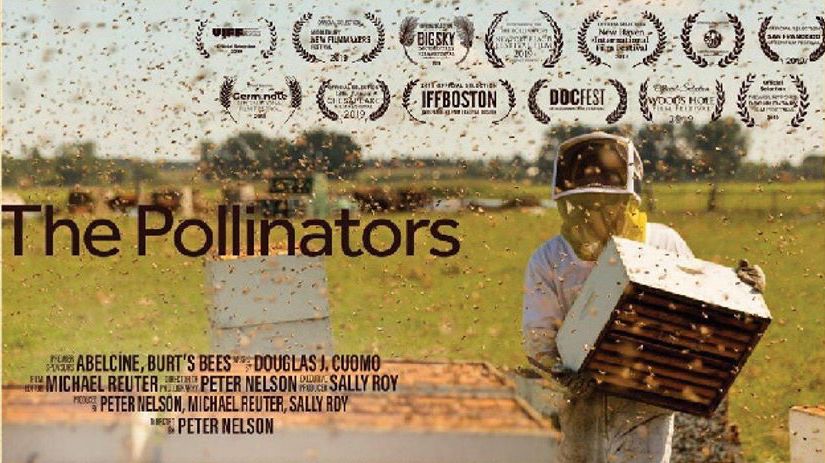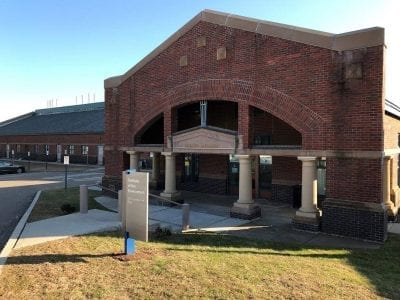By Maizey MabrySmith
Looking for something to watch while you’re stuck at home? Eco House has a suggestion for you. On February 25th, the Eco House learning community held a screening of the exciting new documentary, “The Pollinators.” The event, held in the Student Union Theatre, was open to all students as well as members of the general public. Over 90 students turned out and many more watched remotely.

The film profiles large-scale American beekeepers whose jobs are getting increasingly harder as the years go by. As pesticides such as neonicotinoids become more widespread, bees are dying in record numbers, and bee die-offs are becoming part of the daily routine. To keep up with demand despite this challenge, there is now a constant and large scale movement of hives back and forth across the United States by freight trucks. The almond industry plays an immense role in this, as they rent almost 100% of the nation’s hives for their pollination period. The almond industry’s high demand leaves behind only a small number of bees to pollinate other crops for that period. One emerging solution explored in the film is the regenerative agricultural practices, such as no-till farming, silvo-pasturing and creating habitats for beneficial pollinators. Many of these practices work in conjunction with one another to support the bee population. For instance, the growth of nitrogen-fixing cover crops between normal planting seasons allows for no-till practices and reduces the need for harmful pesticides.
The film was followed by a lively Q&A session with the director, Peter Nelson and producer Sally Roy. The audience came prepared to discuss solutions to the issues facing bee populations and ways in which we can keep the pollinator industry alive. Nelson promoted the importance of supporting local farmers and beekeepers, but also focused on spreading knowledge. The film itself is available upon request for screenings by towns and other large groups, like UConn. Nelson emphasized the importance of spreading the knowledge of these issues so that they can be better understood by the general public, either through the documentary or through alternative educational efforts.
Nelson, a beekeeper himself, personally explained the struggles within the work force and is excited to get to work on his next big project!
The event was co-sponsored by the Office of Sustainability, the Institute of the Environment, the UConn Honors Program and the Department of Plant Science and Landscape Architecture.


